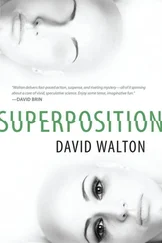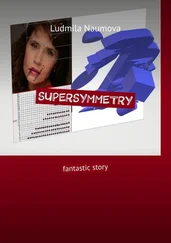So far, it was standard military technology, nothing out of the ordinary. The Turkish soldiers approached, shouting at the American, who put his hands on his head, apparently docile. Then he attacked.
The American flicked his eyes at icons that overlaid his vision, an intuitive interface in a style familiar to most elementary school children. The functions he accessed, however, were a far cry from direction finders and entertainment videos. The rifles spun out of the Turkish soldiers’ hands, flipping through the air and clattering to the ground far away before they could fire a shot. The Turks shouted in surprise, and then—somewhat unrealistically, in Alex’s opinion—charged the American unarmed. They met the same fate as their weapons. The American didn’t even move, but the Turks twisted up into the air, screaming, and were slammed into the ground or thrown over walls. The lights came up to applause. The first scenario of the day had finished without a hitch.
Alex could tell the difference between those who’d seen the technology before and those who hadn’t. The “soldiers” were stunt men, hired for the occasion, and the demo was carefully choreographed, but the technology was real. There were no wires, no tricks, and the visuals had been designed to make that obvious. Those who had never seen it before were stunned, still staring out at the field with their mouths hanging slack. They had grown up taking technological miracles in stride, but this was a leap beyond, into the realm of the wizards and Jedi of their youth. This was magic. And it was only the beginning.
Stanley Babington took the podium next, describing the technology and its concept in general terms.
“The invention of the Higgs projector has brought the power of the subatomic to the warfighter’s control,” he said, raising his hands dramatically to either side. “The Higgs field is all around us, invisible, uniform throughout the universe. It gives matter its mass, controls the characteristics of other particles; in short, it determines all the constants that give our universe meaning.
“But what if we could change it? Science tells us that the big bang produced not just one universe, but countless trillions, all of them frothing up out of the early expansion like so many bubbles. Each has a different Higgs field, producing a different set of basic constants, a different set of fundamental particles, a completely different periodic table. Well, here at the New Jersey Super Collider’s High Energy Lab, we’ve created a universe of our very own, and through it, learned to manipulate the Higgs field in localized areas, for very specific purposes. The Higgs has been called the God particle, and not without reason. To control the Higgs is to control the very nature of reality itself.”
His speech was met with light applause, but Alex was barely paying attention. She perused logs and checked power levels, making sure everything was ready for the next scenario. The truth was, nobody at her company understood this technology completely. Alex had a master’s degree in quantum physics from the University of Pennsylvania, and Lockheed was footing the bill for her to pursue her doctorate in the evenings. She could talk Pauli equations and Poincaré symmetries with the best of them. But there was a mystery at the heart of this, a black box that bridged the gap between the quantum world and the world of everyday objects. Her bosses said it was top secret, a special compartmented classification only shared on a need-to-know basis, and Alex accepted the explanation. She wanted to believe that this knowledge had been developed simply by the hard work of a very brilliant man.
In the second scenario, the same marine was trapped and under fire from multiple assailants. He cowered behind a rock, just barely protected from the bullets that rained down on either side of his position. His attackers fired through holes in a tall stone wall. The audience could see them, but the American couldn’t. The American pulled his last grenade off his belt and pulled the pin. He waited. One second. Two. Through his eyejack lenses, the grenade was highlighted, a glowing arrow pointing from it. The Marine quickly adjusted the arrow’s length and direction, and the grenade in his hand disappeared. At the same moment, it reappeared in mid-air on the other side of the wall—right where the arrow had been pointing—and exploded. The grenade was just smoke and light and noise, but the Turkish soldiers pantomimed their deaths admirably.
“All the miracles you’re seeing rely on one basic principle of physics,” Babington said. “The principle that every particle in the universe is also a wave. A subatomic particle isn’t like a rock or an apple, which has a clearly defined position and velocity. A particle has a probability wave: a set of places where it could be, with varying probabilities. It isn’t just that we don’t know where it is. The particle itself hasn’t decided. It’s in an indeterminate state, smeared out over a region of space. And that little principle allows us to do some truly marvelous things.”
The third scenario was a wooded scene. The Turks hid behind thick trees, but the American’s bullets seemed to pass through the trees like they were smoke. The rubber bullets slammed into the Turks one by one, and the Turks—despite the armored vests they wore under their uniforms—did a convincing job of falling down.
Babington’s voiceover continued. “Bullets don’t usually have a wavelength, or not so much of one that you can tell. We’ve learned how to manipulate that. Our bullets are like particles, traveling in every possible path toward their target. With no obstacle, the probabilities average out to a straight path, the path we expect. But when an obstacle stands in the way, it only stops a part of the wave. The rest of the paths still exist, and so the bullet diffracts around the obstacle, just as light would diffract.”
On the large screen, the audience saw a slow-motion replay of a bullet flying through space, then blurring as it passed through and around a tree before striking its human target, just as solid as ever.
“So far, so good,” Rod said with a flip of bright red hair and a boyish smile.
Vijay scowled. “That’s what people say just before everything goes wrong.”
“Nothing’s going to go wrong,” Lisa said. “We’ve practiced this so many times I could do it in my sleep. I could do it with one hand while bouldering at Coopers Rock with the other.”
Vijay groaned. “You guys are killing me.”
Two more scenarios followed, involving Jeeps with mounted .50-caliber machine guns, and finally, a Turkish Altay battle tank. They went perfectly, despite Vijay’s fears.
Tequila leaned over to Alex’s station. “This last one’s all you, girl,” she said. “Knock ’em dead.”
Alex pulled the Higgs projector from her pocket. It was a slim card, not much different than a personal phone in appearance, but it turned its owner into something like a god. She slipped it back into her pocket. Show time.
Alex stood and stepped away from her station. As she did so, the doors behind her opened, and five Turkish soldiers ran out, shouting and pointing their guns at her. She wore a dark skirt and a light blue blouse; she was obviously part of the support staff, not the show. Nevertheless, the Turks dragged her out onto the floor in front of the VIP stage with a gun to her head, while she feigned terror. The Turk closest to her tore open his jacket, revealing a dynamite vest.
Several of the audience jumped to their feet, unsure if this was part of the show or real. Secretary Falk’s Secret Service detail held their ground, however; they’d been briefed on what to expect. The American marine from the first three scenarios put his gun on the ground and raised his hands. He was quickly tied and blindfolded.
Читать дальше












